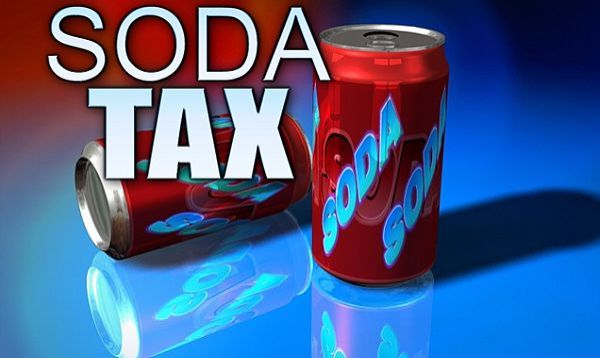Mexico City, Mexico - Before the end of October, Mexico may pass legislative policies that have been tried and failed from Denmark to New York City.
President Enrique Pena Nieto’s proposal to levy a 1-peso-per-liter tax on manufactured sugary drinks, has drawn the beverage industry’s wrath - in the country with the world’s highest yearly soda consumption.
 |
The proposal is currently under debate, with alternatives under consideration that include doubling it to two Mexican pesos per liter, or instead charging a direct tax on sweeteners such as cane sugar and high fructose corn syrup, according to law makers.
The tax would raise $950 million in annual revenue - supposedly to address Mexico’s obesity epidemic. But experience shows the extra revenue won’t have the intended effect on consumer behavior, which is where the waist-line battle is won or lost.
In 2011, Denmark levied the world’s first tax on saturated fats. About a year later it abolished the tax when it proved to be a nightmare to enforce; when Danes just went elsewhere - to Germany and Sweden - to buy the rich foods they craved, and avoid paying the tax.
New York City Mayor Michael Bloomberg unsuccessfully backed a state tax on soft drinks, then a ban on large sodas, in order to combat New Yorkers’ rising obesity rates. The courts shot down the proposals, concluding that it was a mistake to try and regulate consumer choice by government edict.
The Struggle
Bloomberg Philanthropies says it has donated $10 million in an effort to support goals such as "raising taxes on sugar-sweetened beverages." But the group wouldn't say how much, if any, of the money went for ads in Mexico. One of Bloomberg's beneficiaries though, a group called El Poder del Consumidor, is a leading supporter of the soda tax.
In addition to taxing soda, Bloomberg Philanthropies' website endorses measures such as banning advertisements for junk food and sugary beverages aimed at children.
 |
The anti-tax side though, has taken out far more ads than pro-tax advocates.
Cuauhtemoc Rivera is the leader of Mexico’s "National Association of Small Stores," who, along with soft-drink bottlers, retailers, and sugar growers, have purchased full-page ads and broadcast media spots opposing the tax. The hopes are that nationalism will persuade members of Congress to reject the bill.
"Say no to the Bloomberg Tax" and "You are the representatives of Mexico's sovereignty. Are you going to allow the creation of a tax promoted from abroad?", the ads say.
"Between us all we are financing this campaign," Rivera said. "Bloomberg has the right to be crazy, but he doesn’t have the right to come here and impose his craziness on us."
The new tax allows fruit juice, beer, and milkshakes to escape the net. It also wouldn’t touch the home-made, highly sugared waters, like Jamaica and horchata that are sold on street corners in Mexico.
Like any consumption tax, the proposed charge would also hit hardest on those least able to afford it. And it would hit large families harder than single people.
Big Soda
The beverage industry is among the biggest retail money-makers and ad buyers in the country. It has been estimated that soft drink sales account for 40 percent of income at small Mexican stores.
Mexico’s largest soft-drink bottler, Coca Cola-Femsa, says it hasn’t purchased any ads in its own name, but Mexico’s "National Soft Drink and Bottled Water Producers’ Association" - to which the company belongs - has run ads.
 |
Supporters of the tax say they have been prevented from buying billboard and television space for their pro-tax and anti-obesity ads because the Mexican media doesn't want to disaffect bottlers.
Alejandro Calvillo, head of the nonprofit group "Consumers’ Power," said his group was turned down by 2 billboard companies because they "didn’t want to get into trouble with other advertising customers."
Calvillo said Mexico’s main television networks have also refused to run pro-tax ads for the same reason.
Eating Habits Not The Only Problem
Reducing calories is just one of many ways to promote healthy eating and reducing nutrition-related chronic disease - it also requires burning more calories through exercise.
Just discouraging consumption of sugary drinks will have a limited effect in parts of Mexico where common street foods like Guajolota – a traditional breakfast of a deep-fried corn-and-lard tamal folded into a sandwich – are widely consumed.
In Mexico – and everywhere else – what’s needed is a holistic approach. Parents and kids need advice and encouragement to pursue healthier eating, adopting a healthy lifestyle, and acquiring a greater awareness of the calories and nutritional content of the food choices they make.
Despite activists’ claims that industry is the source of the obesity problem and therefore can never be part of the solution, food and beverage industries do have a constructive role to play. After all, the most effective solutions for tackling obesity come from the private sector.
For instance, a potential model in the United States is the "Healthy Weight Commitment Foundation," an umbrella group of food and beverage companies that recently delivered on a commitment they made in 2010 to reduce 1.5 trillion calories sold in the marketplace. They have also partnered with "Discovery Education" to develop a free, online curriculum that teachers and parents can download to help them learn more about what it takes to live a more active healthy lifestyle - and that curriculum has already been developed in Spanish.
This model stands in sharp contrast to Mayor Bloomberg’s busy-body, meddlesome governmental approach. Reducing obesity in Mexico will require enormous amounts of hard work, including a broad private sector coalition – not just a political ‘quick-fix’ tax.
Source: Forbes/AP


